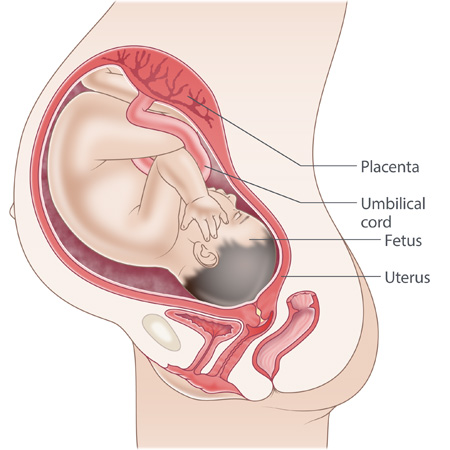You at 39 weeks pregnant
Your cervix is probably getting thinner now – this is called ‘effacement’.
You could have a show at any time. If your waters break, take note of how the fluid looks and smells and call your midwife, doctor or hospital.
Your baby might have ‘engaged’, meaning their head has moved down into your pelvis. You’ll get the feeling of pressure low in your pelvis and sometimes pain or discomfort at the front of your pelvic area. Talk to your doctor or midwife if it's keeping you awake at night.
You’ll probably have a lot of Braxton Hicks contractions. In fact, it might be difficult to tell them apart from the real contractions. If in doubt, call your doctor or midwife and be guided by them.

Your baby when you’re 39 weeks pregnant
Your baby’s growth might slow down now, because your baby is ready to be born:
- Your baby is about 35-36 cm from head to bottom and might weigh about 3.3 kg.
- Your baby has a lot of fat under the skin.
- If you’re having a boy, his testicles are probably fully descended into his scrotum.
- The vernix (a white, creamy substance that protects baby’s skin from the amniotic fluid) is probably all gone, although there might be a little left under the arms, in the elbow creases and under the chin.
- Your baby’s head might drop lower in your pelvis. This will relieve some of the pressure you were feeling at the top of your uterus.